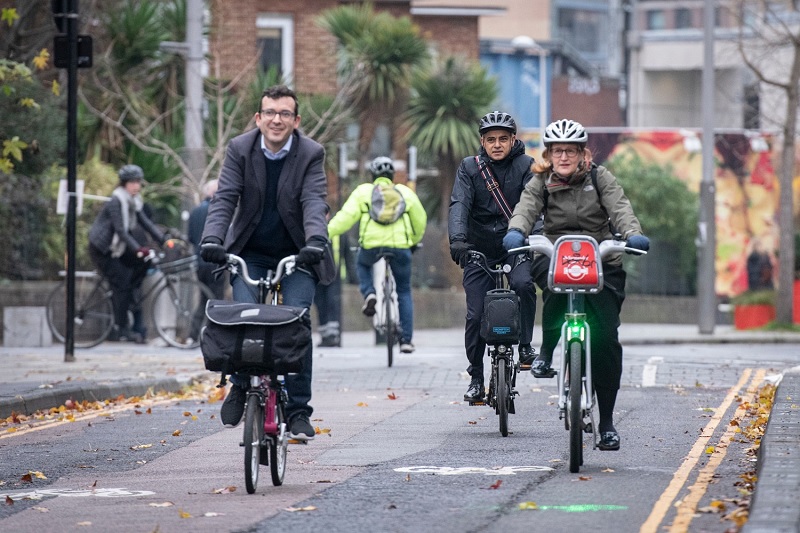
Grants of up to £10,000 have been made available to 68 community projects across London to deliver programmes that address barriers to active travel among traditionally underrepresented groups.
The funding has been provided by Transport for London (TfL) in partnership with The London Marathon Charitable Trust – as part of the 2020 Walking & Cycling Grants London (WCGL) programme.
TfL received 128 applications this year – the highest number in the scheme’s five-year history – and says the funded projects will enable greater physical, social and economic mobility, reduce social exclusion and strengthen communities.
Among the recipients are:
- The Aeon Bike Project – Inspirational Youth Ltd, Lambeth
With advice and support from a mentor on led cycle rides, the project will help young black, Asian and minority ethnic men to speak out about their mental wellbeing and concerns around their educational and career pathways
- Sole Sistas – activeNewham
This project will create two new social walks along the Newham Greenway after the morning school drop off, to help increase the wellbeing of pre- and post-natal women who may have young children
- Breaking the Cycle: Fixing Bikes, Changing Lives – YES Outdoors, Islington, Camden and Haringey
This project will create an opportunity for disadvantaged young people to restore abandoned bicycles under the guidance of qualified mechanics. Participants will be able to keep one bike upon completion
- Walking Down Memory Lane: Step-by-Step Stories around Toynbee Hall – Walk East, Tower Hamlets
This project will create four new walking routes that will start and finish at Toynbee Hall community centre in Aldgate. Stopping points along the walks will act as prompts for older participants to share stories and connections
In total, the 68 projects will receive £593,369 of joint funding over a three year period.
Sadiq Khan, mayor of London, said: “It is more important than ever that we do all we can to enable Londoners of all ages and backgrounds to take up walking and cycling.
“Not only will this mean they can enjoy the huge benefits they bring, but it will also free up space on public transport for those who cannot walk and cycle which is more important than ever to reduce the risk of a car-based recovery and ensure there is space to socially distance on public transport.
“Community schemes like this, combined with physical road changes to reduce danger, play a huge role in giving more Londoners the confidence to walk and cycle.”
But where cycle provision is made, people do like it. They like it for their children to cycle to school. They like it to go to travel to work and they like it to pop to the shops.
“Arriving in a sweat” is never a problem with either electric bikes or cycling at a moderate speed. When walking you don’t “get in a sweat” unless you run. When cycling you don’t “get in a sweat” unless you cycle faster.
The risks of “being mixed with other traffic in a hurry” is something we can address through taking the “hurry” away. Its why changing our default speed urban speed limit to 20mph “resets” our perception of how we should rive in the presence of other. And well done city of Brussels for introducing a city-wide 30km/h default. No need for tedious repeater signs, just set a city-wide default. Everyone knows what the limit is then.
https://city30.brussels/
Rod King, Lymm
0
It’s not that it’s inaccessible, it’s that most people don’t like it, especially when they need to get to work and back, or go shopping, or travel generally. People don’t want to arrive in a sweat or take the risks of being mixed with other traffic in a hurry.
Liz Tass, Staffordshire
0